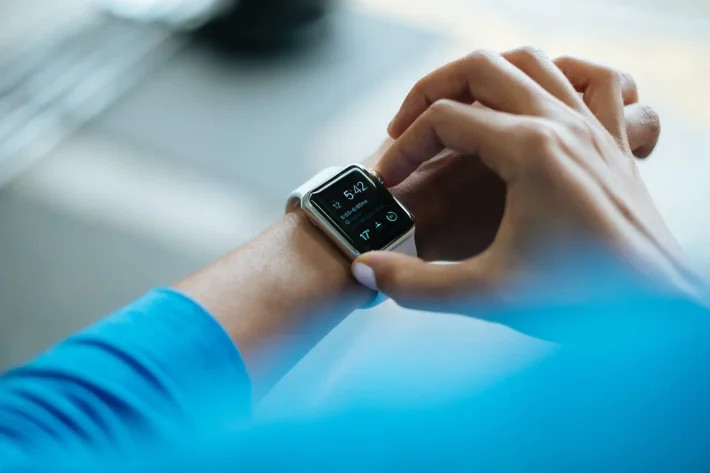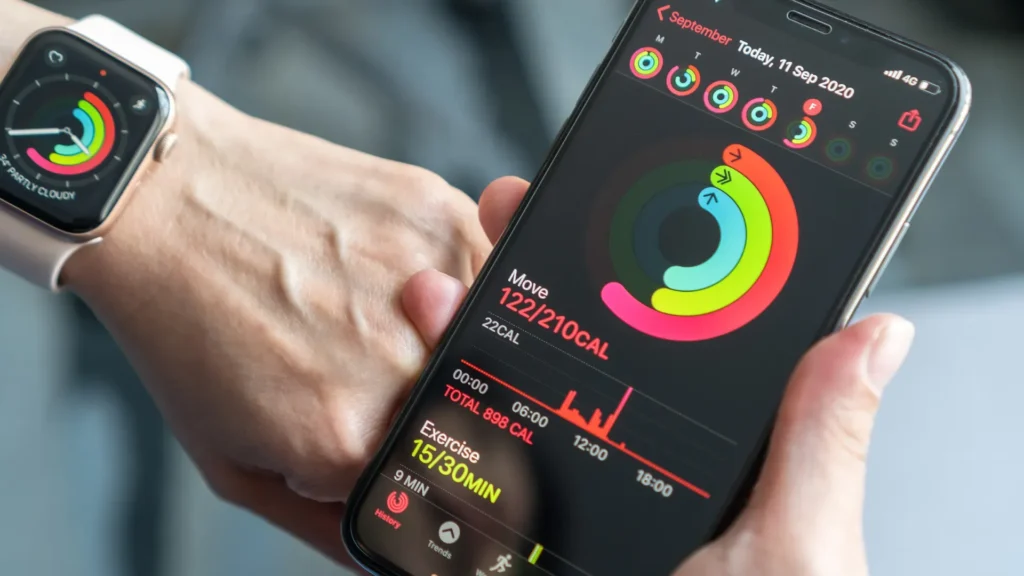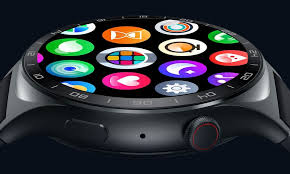Discover how to monitor your health with smartwatches and wearable devices. Learn how these gadgets track heart rate, sleep, fitness, and more to improve well-being.

The Future of Health Monitoring
Technology is revolutionizing the way we take care of our health. With the rise of smartwatches and wearable devices, monitoring vital health metrics has never been easier. These gadgets provide real-time data on heart rate, sleep quality, activity levels, and even stress management.
In this article, we’ll explore how to monitor your health with smartwatches and wearable devices, their benefits, and how to choose the best one for your needs.
Why Use Smartwatches and Wearable Devices for Health Monitoring?
The Rise of Wearable Health Technology
Wearable health technology has become a game-changer in preventive healthcare. Devices like the Apple Watch, Fitbit, and Garmin smartwatches offer advanced features that allow users to track their health metrics in real time.
Benefits of Monitoring Your Health with Smartwatches

Using smartwatches and wearable devices to monitor health provides numerous advantages:
- Early Detection of Health Issues: Alerts for irregular heartbeats, oxygen levels, and abnormal activity patterns.
- Better Fitness Tracking: Helps set and achieve exercise goals.
- Sleep Monitoring: Provides insights into sleep patterns and quality.
- Convenience: Continuous tracking without needing multiple medical checkups.
- Motivation for a Healthier Lifestyle: Encourages users to stay active and improve habits.
Key Health Metrics You Can Track with Smartwatches
1. Heart Rate Monitoring
Smartwatches and wearable devices use optical sensors to measure your heart rate throughout the day. Benefits include:
- Detecting abnormal heart rhythms (AFib).
- Tracking heart rate variability (HRV) for stress levels.
- Monitoring resting heart rate for overall cardiovascular health.
Best Smartwatches for Heart Rate Monitoring
- Apple Watch Series (ECG and irregular rhythm alerts).
- Garmin Forerunner (Advanced heart rate analytics).
- Fitbit Sense (Heart rate trends and notifications).
2. Blood Oxygen (SpO2) Tracking
Measuring blood oxygen levels helps detect conditions like sleep apnea, respiratory issues, and low oxygen during exercise.
Best Devices for SpO2 Monitoring
- Samsung Galaxy Watch (Continuous SpO2 tracking).
- Withings ScanWatch (Medical-grade SpO2 analysis).
- Fitbit Charge 5 (Nighttime oxygen saturation trends).
3. Sleep Tracking and Recovery
Quality sleep is essential for overall health. Smartwatches and wearable devices analyze:
- Sleep stages (light, deep, and REM sleep).
- Sleep duration and interruptions.
- Sleep scores based on heart rate and oxygen levels.

Best Wearables for Sleep Tracking
- Oura Ring (Highly accurate sleep insights).
- Fitbit Versa 4 (Personalized sleep coaching).
- Whoop Strap 4.0 (Sleep debt and recovery tracking).
4. Fitness and Activity Tracking
Smartwatches and wearable devices measure movement, calories burned, and workouts to improve physical fitness. Key features include:
- Step counting and calorie expenditure.
- Workout recognition and intensity tracking.
- GPS tracking for running and cycling.
Best Smartwatches for Fitness Tracking
- Garmin Fenix 7 (Ideal for professional athletes).
- Apple Watch Ultra (Advanced workout metrics).
- Fitbit Inspire 3 (Affordable and reliable for daily activity tracking).
5. Stress and Mental Health Tracking
Managing stress is just as important as physical fitness. Some wearables track:
- Heart rate variability (HRV) to indicate stress levels.
- Breathing exercises and guided meditation.
- Cortisol level estimation based on physiological data.
Best Wearables for Stress Tracking
- Fitbit Sense 2 (EDA sensor for stress detection).
- Apple Watch Series 9 (Mindfulness and Breathe app).
- Whoop Strap (Recovery scores and stress analysis).
How to Use Smartwatches and Wearable Devices for Better Health
1. Set Personalized Health Goals
Use the data from your smartwatch or wearable device to set realistic health goals. Examples include:
- Increasing daily step count.
- Improving sleep consistency.
- Reducing resting heart rate through exercise.
2. Sync with Health Apps for Deeper Insights
Most wearables connect to health apps like:
- Apple Health (iOS)
- Google Fit (Android)
- Samsung Health
- Fitbit App
These apps provide trends, reports, and coaching based on your data.
3. Pay Attention to Alerts and Notifications
Many smartwatches and wearable devices send alerts when:
- Heart rate is too high or too low.
- Irregular heart rhythms are detected.
- Sleep quality drops significantly.
Taking action on these alerts can prevent serious health problems.

Choosing the Right Smartwatch for Your Health Needs
Factors to Consider When Buying a Smartwatch
- Health Features: ECG, SpO2, sleep tracking.
- Battery Life: Long-lasting for continuous monitoring.
- Compatibility: Works with your smartphone and preferred apps.
- Water Resistance: Suitable for workouts and daily wear.
Best Overall Smartwatches for Health Monitoring
- Apple Watch Series 9 (Best for overall health tracking).
- Garmin Venu 2 (Best for fitness enthusiasts).
- Fitbit Sense 2 (Best for stress and wellness tracking).
The Future of Health Monitoring with Wearable Devices
Upcoming Innovations in Smart Health Technology
As technology evolves, smartwatches and wearable devices are expected to include:
- Blood glucose monitoring without needles.
- Non-invasive blood pressure tracking.
- AI-driven health predictions based on continuous data.
These advancements will make wearables even more effective for real-time health monitoring and disease prevention.
Conclusion: Take Control of Your Health with Smartwatches
Smartwatches and wearable devices have transformed health monitoring, allowing users to track vital signs, sleep quality, and fitness levels effortlessly. By leveraging these tools, you can:
✅ Detect potential health issues early.
✅ Improve daily habits and routines.
✅ Stay motivated to lead a healthier lifestyle.
Whether you want to optimize fitness, manage stress, or monitor heart health, smartwatches and wearable devices provide valuable insights to help you live better.
Start using one today and take charge of your well-being!
How to Monitor Your Health with Smartwatches and Wearable Devices – https://www.bbc.com/news/articles/c79zpzdv4vno



